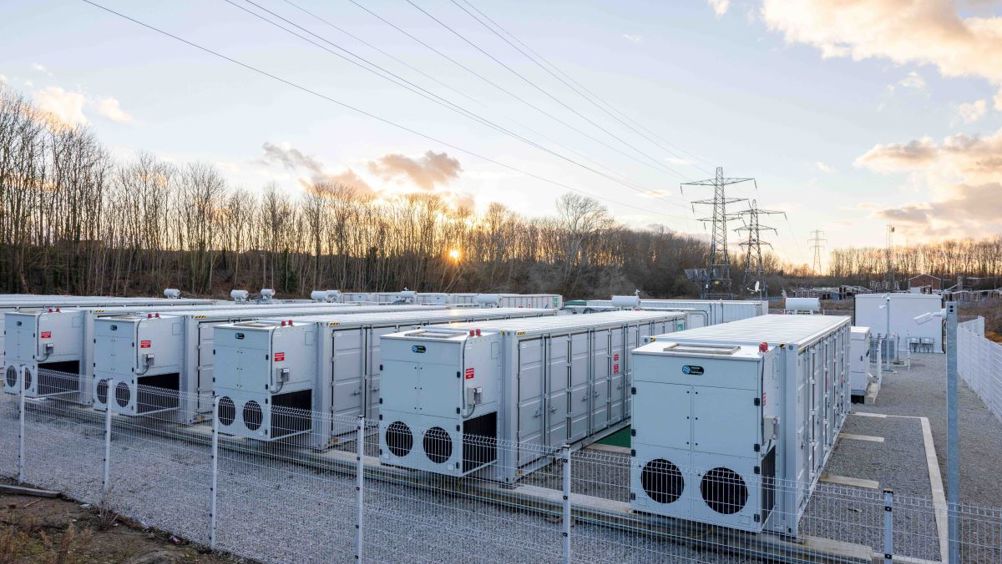EDF Renewables reveals plans for 300MW of battery storage
Six battery storage projects with a combined rating of more than 300MW are set to be added to the grid over the next 12 months by EDF Renewables UK.

The projects include a 57MW battery in Braintree, Essex, a 47.5MW battery in Indian Queens, Saint Austell, and a 47.5MW battery near Mannington in Dorset.
EDF Renewables recently oversaw the energisation of a 52MW battery in Sundon, Bedfordshire, which went live in July. Although MWh figures had not been provided at the time of writing, EDF Renewables claims the six installations – totalling 313MW – are enough to power around 400,000 homes for two hours.
Rapid scale up of storage is needed to complement the expansion of renewable energy that the new government hopes can decarbonise the grid by 2030. Achieving a zero-carbon electricity system by this date will require tripling solar capacity to 50GW, quadrupling offshore wind to 55GW and doubling onshore wind to 35GW.
National Grid ESO estimates that between 20-30GW of battery storage is required by 2030 to facilitate this expansion of intermittent renewable power. Globally, the International Energy Agency (IEA) has calculated that energy storage will need to increase sixfold in order to support COP28 pledges to triple worldwide renewable energy capacity to 11TW by 2030.
Register now to continue reading
Thanks for visiting The Engineer. You’ve now reached your monthly limit of news stories. Register for free to unlock unlimited access to all of our news coverage, as well as premium content including opinion, in-depth features and special reports.
Benefits of registering
-
In-depth insights and coverage of key emerging trends
-
Unrestricted access to special reports throughout the year
-
Daily technology news delivered straight to your inbox










Water Sector Talent Exodus Could Cripple The Sector
Maybe if things are essential for the running of a country and we want to pay a fair price we should be running these utilities on a not for profit...